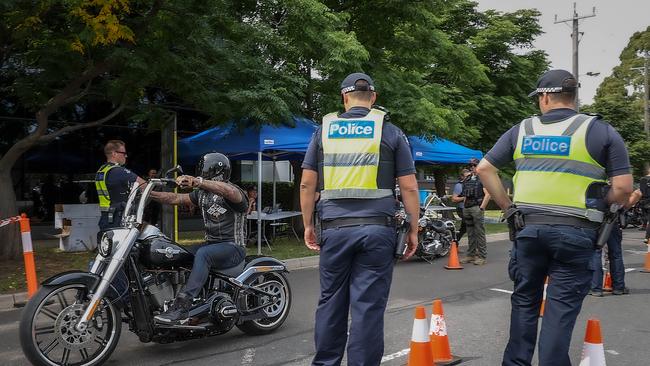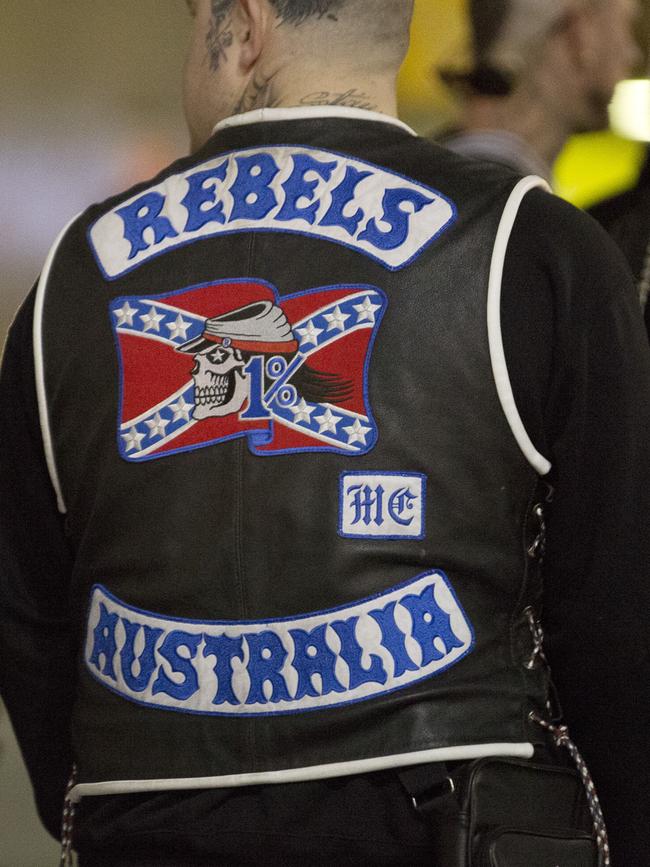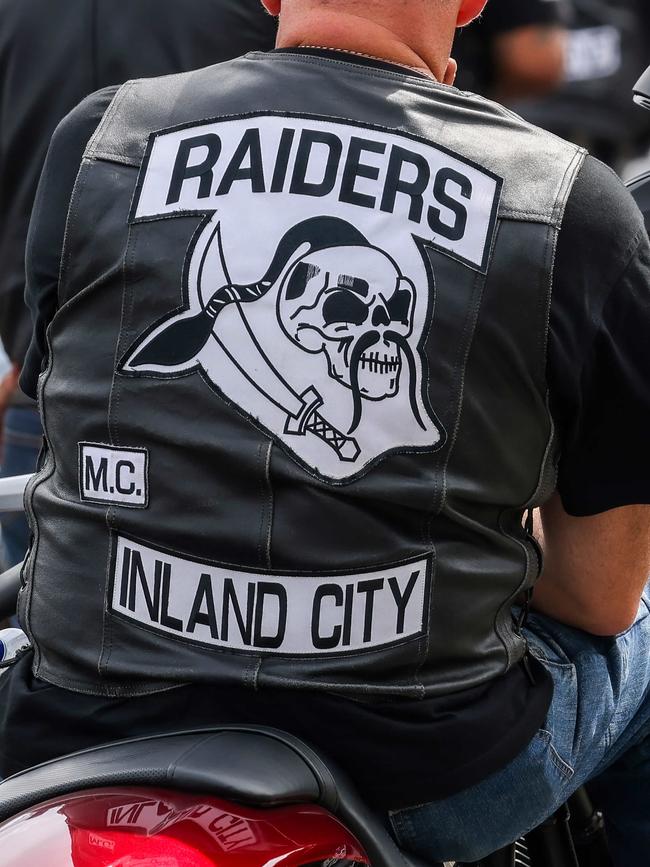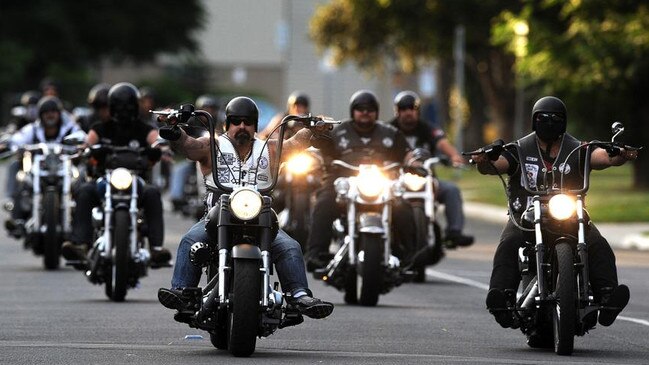Victoria falling behind in anti-bikie laws
Victoria needs to enforce the same anti-organised crime laws as other states, or risk becoming a “safe haven” for bikies, experts say.
Police & Courts
Don't miss out on the headlines from Police & Courts. Followed categories will be added to My News.
Victoria’s anti-organised crime laws are out of step with other states, experts say, and let underworld figures strut about in bikie gang colours, recruit members and openly associate in public without facing the risk of jail time.
Despite former Attorney-General Rob Hulls in 2007 saying the states should have consistent anti-bikie laws so that “no jurisdiction can become a safe haven”, Victoria has failed to keep up with reforms adopted interstate.
In Western Australia it’s up to 12 months jail for even having bikie tattoos on show, while in Queensland wearing bikie gang colours can lead to the same time behind bars for a third time offender.
The Herald Sun revealed this month the Victorian government had not used anti-association powers in the past six years, despite bikie numbers soaring statewide during that time.
Those laws require police to instigate costly and complex Supreme Court proceedings to have bikie gangs made “declared organisations”.

The proceedings would be the only way to impose conditions on day-to-day freedoms of Victorian gang members.
Former Victoria Police chief commissioner Kel Glare said the current anti-association laws “are obviously not working” and needed to be remedied.
“Victorian anti-association laws need to be strengthened,” he said.
“There has been a reluctance to take strong action from the state government. We talk about civil liberties, but there has to be a balance between the safety of citizens and the rights of individuals.”
Mr Glare, who served as the state’s top cop between 1987 and 1992, said Middle Eastern crime figures were also a huge cause of concern.
“A very large proportion of bikie crime is Middle Eastern crime gangs, they drift in and out of bikie organisations as a matter of convenience, not as a matter of conviction,” he said.
“Saturday’s shooting was another instance of Middle Eastern crime figures at war with each other. There needs to be greater concentration on these figures. We shouldn’t pussyfoot around on this.”
Other states have frustrated the work of bikie gangs by banning the public display of gang insignia and tattoos.
In Victoria, the police force’s primary gang-busting has been issuing virtually every bikie gang member with a firearm prohibition order (FPO).
Unlike court declarations targeting the gangs as a whole, FPOs are comparatively easy for police to issue, and have proved almost impossible for bikies to challenge in court.


Acting Commander Peter Brigham from the Victoria Police Crime Command said the orders had contributed to a “significant reduction” in bikie-related non-fatal shootings, with the last confirmed shooting almost two years ago.
“Overall, it’s about making Victoria a hostile environment for any organised crime group to operate in and a key component of this is holding offenders to account,” he said.
“We also have significant collaboration between law enforcement agencies across the country when it comes to these serious and organised crime groups, which includes sharing intelligence and proactively working to disrupt and deter criminal activity.”
He said targeted anti-association legislation introduced in other states had been effective in combating gangs.
“Victoria Police will continue to work closely with government regarding the application of similar laws in this state,” Mr Brigham said.
He said the force had a number of specialist units, including the Echo taskforce, who had “significant experience” in dealing with organised crime groups, including outlaw motorcycle gangs, Middle Eastern organised crime groups and street gangs.
“This includes managing the ongoing tensions and disputes between them,” he said.

Commander Brigham said although Saturday’s Fawkner shooting had created community concern, the force was committed to holding those responsible to account.
He said that generally speaking police had not seen a shift in how rival groups were interacting with one another.
“There is always tension and sometimes this tension can escalate into violence on our streets,” he said.
“We also know that the individuals concerned, particularly OMCGs, are actively attempting to recruit more members. These disputes often culminate in a violent show of force and the consequences are deadly when illicit firearms are involved.”
Premier Daniel Andrews has warned the people involved in the shooting of ex-Mongol Sam “The Punisher” Abdulrahim should expect to “feel the full force of the law”.
A spokeswoman said the state government would “ensure the laws on organised crime in Victoria are as strong as possible and we’ll continue to work through the recommendations and any other considerations with Victoria Police to give them the tools and resources they need”.




